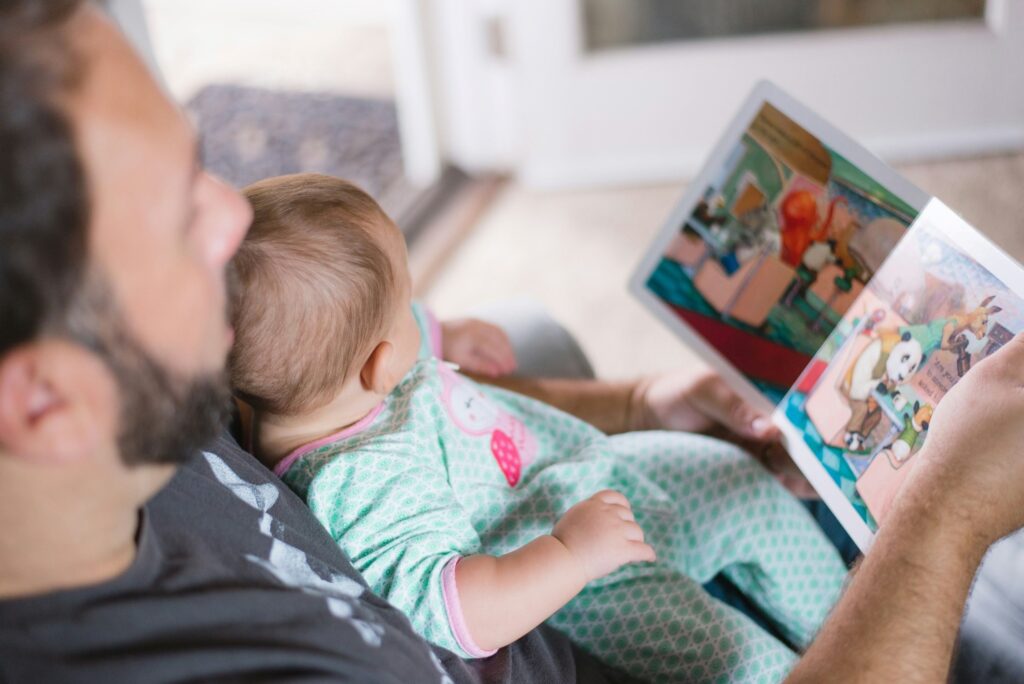This post is also available in Dutch.
It’s well known that reading is beneficial for children’s development. The popularity of BookTok (TikTok) or Bookstagram (Instagram) might suggest that reading pleasure among young people is thriving. However, international research from the Programme for International Student Assessment (PISA) indicates that reading pleasure among 15-year-old youth in the Netherlands, Flanders, and Germany is decreasing. Research shows that children who experience reading pleasure at a very young age also reap more benefits from reading later in life and spend less time behind screens. But what are the benefits of stimulating reading pleasure at a young age? And what can parents do to promote reading pleasure in their children?
Reading Pleasure and Cognition
Reading pleasure is important for overall language development and also plays a role in other aspects of development. Recent research shows that children between the ages of 9 and 13 who have experienced reading pleasure for a longer period (between 4 and 10 years) have better cognitive development. For example, these children have a longer attention span than children who only develop reading pleasure after the age of 10 or not at all. The same research also shows that the total brain volume and certain brain areas are slightly larger in children who read for pleasure from a young age. So, it’s definitely worth promoting early reading pleasure in children.
Reading Together
A commonly given advice to promote reading pleasure in children is to read together with them. Various scientific studies confirm that reading together contributes to a positive attitude towards reading in children. The way this is done is important. For example, it works better if the child leads the reading session rather than the parent. Unfortunately, it often happens that parents give up reading together if a child does not seem to enjoy it. For example, when children quickly move away or do not read the book from cover to cover. However, this behaviour does not necessarily mean that reading aloud is not a good activity to do together. So, don’t give up easily. If you find it difficult as a parent to read with your child, or if you’re not sure what to read with your child, libraries often organize activities related to reading for children, for example, during Children’s Book Week (October 2 to 13, 2024). Or search together with your child for letters in the castle of the Letter Prince, an online game developed by scientists from the Donders Institute to promote reading pleasure.
E-books
Paper books are not the only way to encourage children to read Not only reading paper books encourages children to read. Research has shown that reading e-books can also have a positive effect on reading pleasure and language development. The right choice of book is important here. Sharing experiences during reading, creativity, and interactivity with the book are important factors. Despite the positive effect of digital books, the research advises a mix of digital and paper books because some e-books are not necessarily extra enriching for the reading experience.
Increasing Your Reading Pleasure Yourself
It’s never too late for adults to rediscover the joy of reading. For example, follow a BookTok or Bookstagram account for new tips in a genre that appeals to you. The podcast from Cultural Baggage “A Book Club with Wine: How to Get Yourself Back to Reading with Pleasure?” also provides good tips on how adults can rediscover or maintain their reading pleasure.
Author: Anna Praat Buddy: Lucas Geelen Editor: Dirk-Jan Melssen Translation: Swantje Neil Editor Translation: Elena Markantonakis
